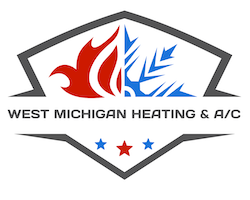
Have you ever performed a double take when you checked your last energy bill? While high energy bills can be the consequence of extreme weather conditions, repeatedly high bills can also indicate an inefficient HVAC system or your home is misusing energy because of other means, such as drafty windows or poor insulation.
One of the simplest ways to identify whether your home is wasting energy is by calling a home service specialist to perform a home energy audit, also referred to as a home energy assessment. Keep reading to learn all about home energy audits, including what they are and their key elements.
What Is a Home Energy Audit?
An energy audit is a thorough inspection of how much energy your home uses up and whether – and where – your home may be losing or wasting energy. An inspector will go through past energy bills during an energy audit to figure out where energy is being consumed and how much.
The ultimate goal of an energy audit is to help homeowners save money on their energy bills by recommending energy-efficient renovations, which can include swapping out your existing HVAC system, putting in new insulation, sealing up leaks, or replacing loose windows.
While completing the energy assessment, the auditor also completes an inspection of the outside and inside of your home. The auditor will perform a blower door test on doorways, windows and fireplaces to find out if there are air leaks in your home. They’ll also evaluate your home’s HVAC system, including the ductwork, the water heater, and the insulation in your attic. Comprehensive assessments could also include inspecting your current lighting system.
Benefits of a Home Energy Audit
It can be difficult for the average homeowner to be sure how efficient their home is versus other similar homes in their area. However, many energy companies often offer information about where your home ranks in comparison to similar homes and whether it’s more efficient, about average, or inefficient in contrast with your neighbors’ homes. This could be a useful starting point to decide if you need an energy audit scheduled.
Several of the benefits of a home energy audit include:
Recognizing How Efficient Your Home Is
It’s worthwhile to know how efficient your home is and where you’re using the most energy. For example, if your ducts are leaking air, it could cause a large increase in your energy bills and increased wear and tear on your HVAC system since it has to work longer to fully heat or cool your home.
Making Energy-Efficient Updates
An energy audit will outline where you need to make energy-efficient changes to save on energy and lower utility bills. This may include replacing old weatherstripping or buying a new energy-efficient furnace.
Enhancing Health and Safety
Permitting air to slip into your home via doors and windows, or as a result of a lack of insulation can cause extra moisture to appear, which can negatively impact your home’s humidity levels or encourage mold. This can cause health problems, especially for people dealing with asthma or allergies.
Adding to Your Home’s Retail Value
Energy-efficient homes are preferred by homebuyers. You can sell your home more quickly or for more money by telling possible buyers that it’s energy efficient.
How to Perform an Energy Audit of Your Home
Although handling an energy audit on your own may not be as thorough as hiring a professional, it’ll give you a general sense of how energy efficient your home is. If you don’t find any flaws during the DIY test, then you probably don’t need to bring in a professional. Try this step-by-step checklist:
- Inspect your HVAC system. Broken ducts can lose nearly 20% of conditioned air, contributing to steeper energy bills and greater strain on HVAC equipment. If you notice leaks, use duct tape to seal them. If your HVAC equipment is old and wearing down, upgrading to a new system can save you a substantial amount on your energy bills. In some cases, it might be better to call a reputable HVAC company to inspect your system.
- Look for air leaks. Air leaks on average can increase monthly energy bills by 10 to 20%. Inside, look for air leaks in areas where there could be a draft, like along the edge of flooring and close to baseboards and electrical outlets. Outside, you can look for air leaks around the home’s foundation, siding and mortar. Plug, caulk or seal any air leaks to save money.
- Inspect insulation. If your home is older, it could mean your insulation is too. If you can see the joists, you likely need more insulation.
- Check ventilation. Ensure that all of your kitchen and bathroom exhaust fans are spinning properly, and look for evidence of rot or moisture.
Contact West Michigan Heating & Air Conditioning Services for a Professional Energy Audit
If you are interested in professional help determining how energy efficient your heating and cooling equipment is, call the HVAC pros at West Michigan Heating & Air Conditioning Services today. We’ve proudly supported the residents of Hudsonville with quality home services for many years. Contact us today to schedule an appointment.


